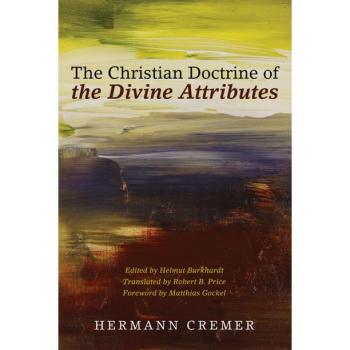Occasionally I’m asked to look at something on the internet about Arminian theology. It seems that, once again, a conservative Reformed scholar is challenging Arminian theology–as closer to Catholic doctrine than to Reformation doctrine. The issue this time, as often, is “justification.” The accusation is that Arminius and the Remonstrants denied the classical Reformed doctrine of justification and that was the main reason they were criticized and excommunicated by the Reformed.
The article in question is by Mark Jones and is titled “Arminian vs Reformed on Justification” and can be found at the Alliance of Confessing Evangelicals blog “Reformation 21” at www.reformation21.org/blog/2015/05/arminian-versus-reformed-views-php
I believe I cleared up this matter in Arminian Theology: Myths and Realities (InterVarsity Press) but apparently Jones has not read it.
All I want to say here, for now, is that “Arminian theology” is not limited to what Arminius or the first Remonstrants believed. Reformed theologians love to say that “Reformed theology” is not limited to Calvin or his first followers (e.g., Beza). So why do they so often attack Arminianism by pointing out what they think are doctrinal flaws in Arminius or (for example) Bertius or Episcopius?
Let me be clear: I do believe Arminius and the early evangelical Remonstrants believed in the classical Protestant doctrine of justification by grace through faith alone without human merit. That puts them clearly on the Protestant side of the Reformation debate over justification.
Some Reformed theologians, however, want to elevate a particular doctrine of justification–one inseparable from unconditional election and irresistible grace–to the status of the only Protestant doctrine of justification. This is, I would argue, a mistake. But it is probably not one anyone can win when conservative Reformed critics pack into “justification by faith alone” monergism to the exclusion of any hint of synergism.
In other words, the “game” is rigged from the start. These conservative Reformed theologians and critics of Arminianism will never be satisfied that any non-monergistic soteriology is truly Protestant. They continually hint, if not say outright, that any non-monergistic doctrine of salvation is crypto-Catholic and not truly Protestant.
But the main point I want to make is that attacking Arminius at some perceived weak point does not necessarily affect all Arminianism which, like Reformed theology and even Calvinism, is not identical with “what Arminius said.” Arminianism, like Calvinism/Reformed theology, is a tradition that includes diversity and change. It grows out of Arminius’s work in some sense, but is not bound to that in a one-on-one kind of way. Actually, I argue, “Arminianism” is a type of theology that pre-dates Arminius; its basic impulses can be found in, for example, Balthasar Hubmeier almost a century before Arminius. In other words, in my opinion, many Christians have a basically Arminian soteriology who have never been influenced by Arminius or the Remonstrants. I still call them Arminian due to their soteriology’s similarity with the basic impulses of Arminius’s theology of salvation.
I am not an Arminian because I agree with Arminius on every point. I don’t know many people who do! I never even heard of Arminius until college and didn’t read him until much later. Before that I would have said I was Wesleyan even though I didn’t agree with Wesley about everything (especially entire sanctification).
I demonstrated in Arminian Theology: Myths and Realities that the tradition called Arminianism or Arminian Theology does include a strong doctrine of justification by grace alone through faith alone. EVEN IF it could be demonstrated that Arminius himself did not believe in that doctrine of justification (and that could only be done by discovering some hitherto lost document written by Arminius himself) , I would still call myself an Arminian and I would still believe in justification by grace alone through faith alone including imputed righteousness.
I suspect that EVEN IF some hitherto lost writing of Calvin’s were to be found in which Calvin clearly denied monergism most Calvinists would continue calling themselves Calvinists and that’s because “Calvinism” is a tradition; it has a life of its own separate from Calvin. The same is true of Arminianism.
To make this point is why I wrote Arminian Theology: Myths and Realities. Or at least it is one reason I wrote it. Unfortunately, many critics and defenders of Arminianism still think that “what Arminius said” is definitive for defining Arminian theology. It is not.











